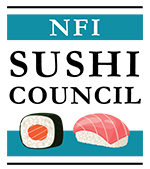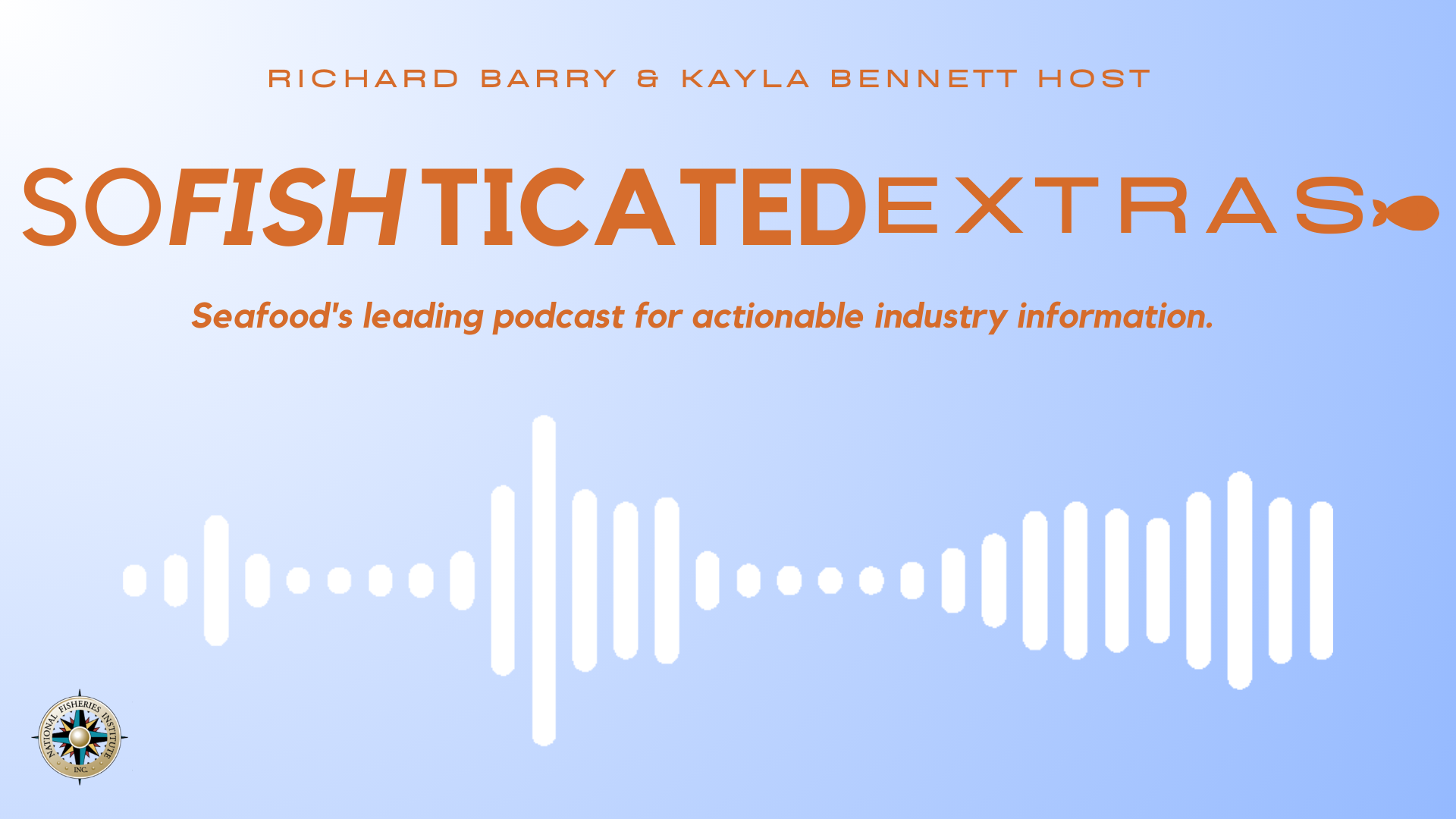Edward Groths Fish Facts
Yesterday Dr. Edward Groth III of the Mercury Policy Project announced the launch of a new website designed to provide ‘mercury facts’ that stand in contrast to ones provided by sites like this.
On just this page alone he mentions the National Fisheries Institute (NFI) by name literally dozens of times, while defending agenda-driven, scare stories as informed, accurate coverage and even coddling Jeremy Piven and his exaggerated claims of mercury poisoning (he does not address Pivens other dietary claims that drinking too much soy milk caused him to grow breasts.)
With all that vitriol aimed at NFI for simply trying to make journalists do their jobs by reporting on the latest independent seafood science he fails to mention one very important fact.
In December 2009, Dr. Edward Groth approached NFI with his proverbial hand outstretched. Thats right, Groth and his Groth Consulting Services approached us about teaming up with him.
Groth wrote in a letter to NFI President John Connelly, Im hoping we can discuss the possibility of my working with NFI on risk communication about mercury in seafood. He wasnt shy about it either, noting Ill attach some personal references, should you decide to check me out further. To assuage any fears we might have about working with him he assured us that, it may surprise you that our perspectives have much in common.
Regardless ofall ofhis talk about sharing goals and working together we did not respond to his proposal. So, despite his proffer youll notice that Groth, often cited as a science consultant at the Mercury Policy Project, was never hired by NFI as an advisor. You might also notice a sharp and subsequent up-tick in his attacks against NFI.
Feel free to read his solicitation letter below:
———————————-
Dear Mr. Connelly:
I left a voicemail message for you a few days ago. Perhaps youve been away from your office or busy, or perhaps you decided not to reply. In either case, I thought Id lay out what I hoped to talk with you about into a letter, to give you a chance to digest it.
Im hoping we can discuss the possibility of my working with NFI on risk communication about mercury in seafood. If you are familiar with any of my work on that issue for consumer and environmental organizations, you probably regard me as on the other side of the issue from NFI, and must be wondering why I think we could work together.
Let me introduce myself. A biosketch is attached. I have a PhD in biology; I specialize in the use of science in policymaking, with a focus on environmental health. For almost 25 years, I worked at Consumers Union, the publisher of CONSUMER REPORTS magazine, where I was an in-house expert on environmental health and risk assessment Throughout my career, my responsibilities have included communicating about riskstranslating scientific information about health risks into plain language for consumers (and magazine editors), and speaking with the public and the media about those issues. I am retired now, and work occasionally as a consultant, primarily on food safety and risk communication problems.
Throughout my career I participated actively in the external scientific community and in the work of regulatory and advisory bodies on environmental health risk issues. I had a (well earned, I believe) reputation as an open-minded scientist, receptive to perspectives of people from other sectors. Yes, my roots are in the consumer movement, but I have always been someone industry, government and other stakeholders can talk to and work with. Those who know me can vouch that I am concerned first with getting the science right, and then with trying to figure out what policies are most appropriate, given the scientific facts.
Ill attach some personal references, should you decide to check me out further. Id urge you to call them and ask whether they think Im someone with whom you could collaborate.
Now, on to my main topic, communicating with consumers about mercury in fish. It may surprise you that our perspectives have much in common.
Americans (essentially everyone) should be eating more fish than they do at present. If NFI members could double their sales in coming years, public health would benefit enormously. But seafood consumption also poses some risks, and increasing fish consumption can potentially increase risks to public health. Consumers need accurate, balanced information to guide their seafood choices. If risks are overstated or presented in a frightening way, people may eat less fish, and public health could suffer. If consumption increases without attention to risks, public health might absorb damage that could have been prevented. Getting this balance right is quite difficult. People on all sides of the issue can make mistakes in communication that lead to unintended effects, even effects opposite the desired ones.
The information now reaching consumers is contradictory and confusing. Most consumers dont understand why they should eat more fish, whether they need to be concerned about risks, or how to avoid risks that do concern them. Many health authorities and expert organizations have urged Americans to eat more fish some of them have specified that (certain subpopulations) should choose low-mercury fish. Others have either ignored the mercury issue or dismissed mercury risks as trivial compared to expected health benefits. Even among those who stress the need to minimize mercury exposure, essentially no one has explained clearly what is meant by low-mercury fish. The resulting situation is a Babel of mixed messages that has thoroughly confused and quite likely frustrated a great many consumers.
In this communication environment, NFI’s message, to oversimplify it a bit, has been Eat more fish, and dont be concerned about mercury. NFIs communication style has been a hit-back public-relations campaign from the Eric Dezenhall playbook. Elements of the campaign include dismissing mercury risks as scientifically unfounded, criticizing those who believe that mercury does pose significant risks, and pushing back aggressively against journalists and others who publicize mercury risks.
Such campaigns are fairly common when an industry perceives its market to be threatened by an environmental health risk associated with its product. I fully understand why NFI has chosen to respond to the mercury issue this way. And, you may be perfectly content with your current communication efforts, and not inclined to consider doing anything differently, if so, you may see no point in having dialogue with me.
Let me offer you a few reasons for such a dialogue. In my judgment, NFIs approach may be counter productive. In fact, your risk communication on mercury might well be harming NFI members business interests more than it helps them.
I would be happy to expand upon these points if we talk:
Wearing my environmental health scientist hat, I assure you that, regardless of how NFI may perceive it, the science supporting concerns about public health damage from methylmercury exposure is valid, strong, and getting stronger each year. This is a bona fide, important public-health concern.
Still wearing that hat, history is not on your side. With other environmental health hazards (such as lead), as time has passed, research has reinforced risk concerns and reduced the level of exposure considered hazardous. This pattern is now playing out with methylmercury and prenatal cognitive effects. NFI can continue to take the view that the science is inconclusive and there is no real risk, but to do that is to face a potentially large public backlash when the evidence becomes overwhelming, which it soon enough will. If that backlash were to occur, damage to public confidence in the safety of seafood could be deep and long-lasting.
Alternatively, NFI could reposition itself by agreeing that mercury poses risks worth being concerned about, and proactively helping consumers manage their own mercury intake, enabling you toy ahead of the curve as new research findings emerge.
Now, wearing my risk-communicator hat, I advise you that, when consumers already are worried about a risk, telling them not to worry does not work. Instead, it usually has the opposite effect: It makes them feel as if their legitimate concerns are being brushed aside. That makes them trust you less, and worry more.
You will not make consumers worry less about mercury in an environment where many reliable sources (from FDA to CONSUMER REPORTS) are telling them this is a valid health concern NFIs dont worry message cannot cancel out the opposite messages out there. Instead, it exacerbates the Babel effect described above, increasing consumer confusion. Confused consumers generally become more risk averse. I.E., while fear may make some consumers eat less fish, confusion probably makes many more of them eat less fish.
I will assume that you and I share the goal of persuading consumers to increase their fish consumption, without increasing public health risk associated with methylmercury exposure. There is a better way to go about it than what NFI is doing now, and I believe I could help you make the transition, if youd like to. If you want to hear more about the elements of that alternative approach, and how we might work together to implement it, please give me a call at XXX-XXX-XXXX. If you are not interested at all in pursuing it, just send me an e-mail (XXXXXX@cs.com) and Ill stop bothering you.
Thank you for your attention, and I hope to hear from you. Best wishes for the holiday season to you and others at NFI.
Sincerely,
Edward Groth III, PhD
———————————-
To say the least, Groths letter of December 15, 2009 offering his services to NFI came as quite a surprise. After all, some of his recent public rhetoric on popular fish like tuna had been less than flattering. He wrote an essay under the headline Tuna Rots Your Brain and later gave a lecture to college students and told them that his new favorite slogan was, Its the tuna stupid!
Despite these attacks he wrote to NFI to propose that “Americans (essentially everyone) should be eating more fish than they do at the present,” and that, “Consumers need accurate, balanced information to guide their seafood choices.”
We agree wholeheartedly. But if Americans are not eating enough fishand a wide variety of studies have shown that they are not perhaps its because a loose confederation of radical environmental activists have been deliberately distorting the science concerning seafood, mercury and nutrition without regard to its ultimate impact on public health.
So when Groth writes in his letter, If risks are overstated or presented in a frightening way, people may eat less fish and public health could suffer, that sounds like a candid acknowledgment of a longstanding harm in the public discourse. The problem though, is that Groth has taken part in various campaigns that were designed to spread alarmist messages about seafood and nutrition. Hasnt Groth been on the Mercury Policy Project payroll?
Just so we are clear on his reference to public health suffering that occurs when Americans dont eat enough fish. That means reduced cognitive development in children nationwide and thousands of additional deaths due to heart disease and stroke.
This strange chapter raises some serious questions, like:
- Groth wrote that risks of eating seafood have been presented in an “overstated and frightening way.” What exactly is he referring to? Who, specifically, has been making those sorts of irresponsible claims and what, precisely, is inaccurate about them? Most importantly, what has Groth done to try to confront those efforts to scare the public?
- His letter and website also faults NFI for “pushing back aggressively against journalists.” Every one of our challenges has been laid out in full detail on our media page. When major news organizations and environmental activists publish information on seafood that is manifestly false, is Groth suggesting that NFI is wrong to point that out?
- NFIs public discourse with the media and others exists in stark contrast to the latest effort by the Mercury Policy Project, where information is poorly sourced, if at all, and many of the arguments are simply straw men. When it comes to honest debate, we feel the need to point out that our media blog freely allows comments. Meanwhile, if you visit the Mercury Policy Projects new site youll find that every single entry ends with the same three words: Comments are closed. Should we expect those comment areas to remain closed?
- Why does Groth cite the U.S. Food and Drug Administration as a source that counsels avoidance of fish consumption, while ignoring the agency’s latest draft reportfrom January 2009 that counsels just the opposite?



